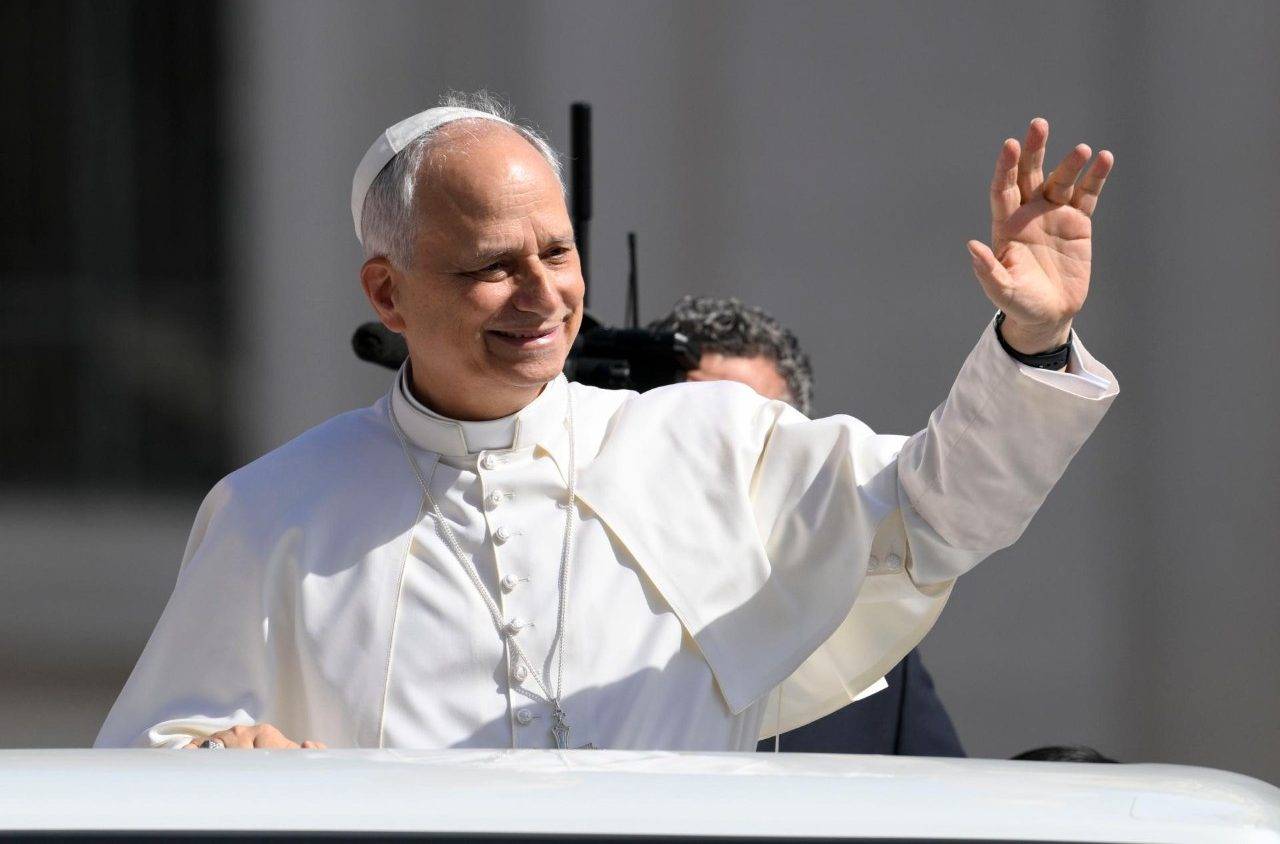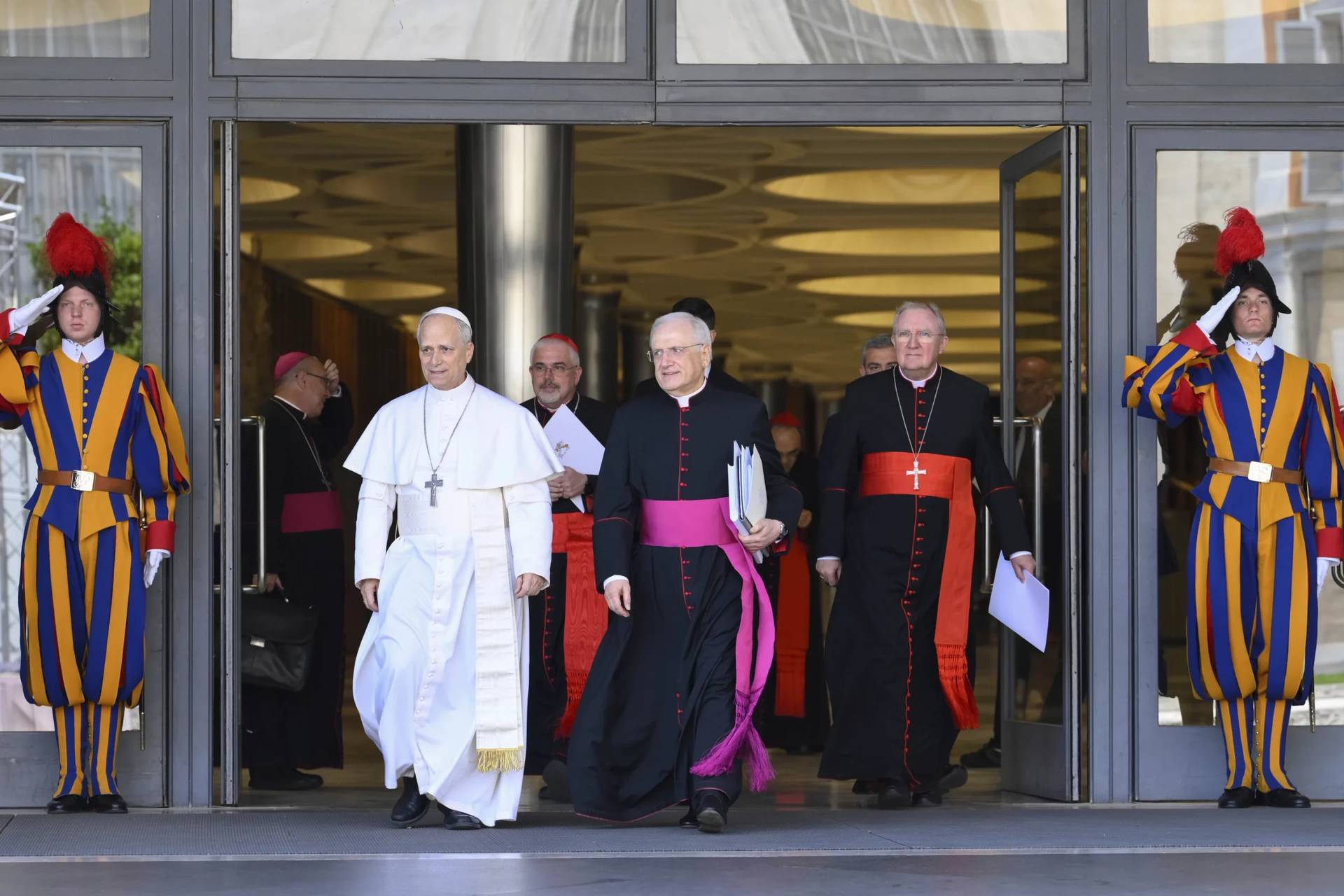For watchers of the American Catholic scene, Archbishop José Gómez of Los Angeles is an ever more fascinating figure for many reasons, but perhaps the most compelling is that he’s a living, breathing reductio ad absurdum on the notion that bishops are somehow in bed with either the political left or the right when they take positions on matters of public policy.
Gómez, 65, has been in charge in Los Angeles since he took over from retired Cardinal Roger Mahony, and, at the time, the transition was perceived as having an ideological edge. Now 81, Mahony had been in L.A. since 1985, and for much of that span was seen as a leading progressive force in the church, embodying a “Vatican II” vision of things.
Gómez, on the other hand, came with solid conservative credentials. Born in Monterrey, Mexico, and now a naturalized U.S. citizen, while in college Gómez joined Opus Dei, a “personal prelature” in the Catholic Church generally viewed as fairly conservative on both secular politics and church affairs.
(In reality, Opus Dei as such has no political agenda at all, but there’s no point denying that sociologically, at least, most of its membership probably does lean to the right.)
Gómez began his episcopal career as an auxiliary bishop in Denver, where he was the protégé of Archbishop Charles Chaput, now in Philadelphia, and widely seen as a strong conservative. After he became the Archbishop of San Antonio in 2004, Gómez disbanded an archdiocesan Peace and Justice office after it opposed a state constitutional amendment banning same-sex marriage, objected when St. Mary’s University hosted candidate Hillary Clinton in 2008, and warmly welcomed Pope emeritus Benedict XVI’s move to widen permission for celebration of the older Latin Mass.
Among many Hispanic Catholic leaders in the States, Gómez early on wasn’t seen as a major voice on social justice issues, such as worker’s rights or community organizing, but was rather known as someone who stressed the importance of catechesis for Latinos/as, feeling they often had only a perfunctory formation in the faith.
For sure, Gómez never has been anyone’s idea of an ideologue. He’s an accountant by training, and, for the most part, has a very practical, “whatever works” cast of mind. Yet if you asked anybody who knows him which way his instinctive sympathies run, most would point to the right, and that basically remains the case.
Yet today, Gómez has emerged as the most high-profile and determined voice in the American church on what’s usually perceived as a fairly liberal issue: Comprehensive immigration reform, including a path to citizenship for the country’s 11 million undocumented immigrants.
We got further confirmation of the point on Tuesday, when Gómez published an essay in his diocesan publication Angelus insisting on saving protections from deportation for children of immigrants who entered the country as minors, the “Deferred Action for Childhood Arrivals” program, and laying out the case for a broad immigration reform.
All this is especially ironic, given that for most of his career Gómez didn’t exactly seem plucked out of a Hollywood central casting office for the role of inspirational leader of a transcendent moral cause.
For years, when you asked brother bishops off the record what they thought about Gómez, the words you’d most often hear, aside from the fact that he’s a genuinely nice guy, were “quiet,” “solid,” and “reliable.”
(To be clear, that was meant as high praise. Bishops can be a bit like old-school baseball managers, who, as described by Jim Bouton in the classic book Ball Four, are known to say things like, “He’s a great guy … never says a word.”)
Gómez remains humble and a bit shy, hardly the high-octane personality of, say, a Cardinal Timothy Dolan in New York. (But then, who is?)
Nevertheless, in recent years he’s become steadily more outspoken, and passionate, on immigration. At times, he sounds almost like an Old Testament prophet, thundering away at the injustice and immorality of what he calls an immigration system that’s “broken and broken comprehensively, in every area.”
He’s obviously ready to lead. Recently, he launched a slick new website called TheNextAmerica.org laying out a vision for immigration reform, and providing a range of resources to help make it happen.
Of course, Gómez is hardly the only American bishop who’s been outspoken in defense of immigrants, but he’s the only one who, quite plausibly, could be both the next president of the U.S. bishops’ conference and the country’s first Hispanic cardinal.
His profile is only likely to increase, as tensions around immigration are rapidly becoming the contraception mandates of the Trump era, meaning the defining struggle between the U.S. bishops and the White House.
For anyone familiar with Gómez, it’s blindingly obvious that his top concern in arguing for immigrant rights isn’t putting a Democrat back into the White House. It’s because both his personal and pastoral experience, over and over, have taught him it’s the moral thing to do.
To return to where we started, if we can look at José Gómez and still believe that bishops are somehow being “partisan” when they articulate principles of Catholic social teaching in the public square, one does have to ask, “Then what would it take to change that?”














